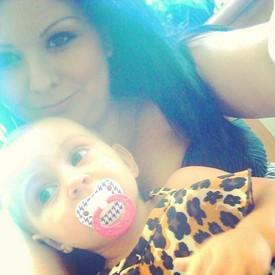Your Scale Doesn't Tell the Whole Story

ErinMarie25
Posts: 733 Member
Great article from Beachbody. This is for all who freak over the scale. :P
When it comes to weight loss, the scale can be a good measure of progress, particularly if you have a lot of weight to lose. But if you place too much emphasis on your weight and not enough on your body composition (the ratio of fat to lean muscle), you're only getting half the story. Plus, dreading your weigh-in or obsessing over the number on the scale is unproductive and can lead to unhealthy behaviors such as bingeing or starving yourself. Losing pounds doesn't always mean losing fat. Here's why the scale can be misleading.
* The scale doesn't tell you how much fat you have. Your scale does exactly what it's supposed to—it tells you how much you weigh. But in addition to measuring your weight, the scale weighs bone, water, muscle, organs, and undigested food. When the number on the scale goes up or down, it doesn't represent only fat loss or muscle gain. It measures fluctuations in glycogen (stored carbohydrates) and water, and it even measures how much that breakfast you ate weighs.
You may wonder about scales that claim to measure your body fat. These send small electrical currents up one leg, through your pelvis, and down the other leg to determine your body's density. Then a formula is used to estimate your body fat. The problem with these scales is that they're notoriously inaccurate. However, they are usually consistent in their readings, so they can be helpful as a measuring tool. Even though the body fat reading might be off by as much as 5 or 10 percent, if the number trends downward over time, you know you're on the right track.
* The scale can't tell if you've gained muscle. A pound of muscle is like a brick, small and compact. A pound of fat is like a fluffy feather pillow, bulky and lumpy. When you gain muscle and lose fat, your body gets smaller and tighter. Building muscle also makes it possible to drop clothing sizes without a big change in weight. Perhaps after a 90-day fitness program, the scale says you lost 7 pounds, which may not sound like much. But what if you actually lost 12 pounds of fat and gained 5 pounds of muscle? That's a remarkable improvement in your body composition, but you wouldn't know it if you only used your regular bathroom scale to track your progress.
* You didn't really gain 5 pounds of fat overnight. You may step on the scale one morning and shriek in disbelief because the number is five digits higher than it was the day before. Stop panicking. Unless you ate an extra 17,500 calories the previous day, you didn't gain fat (a pound of fat is equivalent to 3,500 calories). Your scale is registering water, stored carbohydrates, and food. Also, cheap bathroom scales may have measurement errors, giving slightly different readings even when you're at exactly the same weight.
* Your body's water levels are constantly changing. The scale can move up or down depending on how much water you drink, how much salt you consume, how much you sweat, and how many carbohydrates you eat. An average person can see a daily fluctuation in water weight of about 2 pounds, without any changes to diet or exercise habits. These fluctuations do not signify fat loss, and watching the scale move up and down every day can be frustrating for many dieters.
If you're trying to achieve a healthy weight and improve the way you look, you should focus less on what the scale says and more on developing the good habits that will produce results. To get lean and strong, with low body fat and nice muscle tone, there are three things you should do:
1. Cardio plus weight lifting (or other resistance training). Cardio workouts raise your heart rate to help you improve your fitness level, burn calories, and shed fat. Resistance training builds muscle, which boosts your metabolism and helps you burn even more calories.
2. Healthy diet. No matter how much you exercise, you'll never reach your fat-loss goals if you don't follow a healthy diet consisting of protein, vegetables, fruit, and whole grains. The right foods in controlled portions will fuel your body as it shrinks.
3. Track your progress. If you don't use the scale, you need to do something else to check your progress.
* One of the best ways to keep track of your changing body is to use a tape measure. Record your chest, waist, hip, thigh, arm, and wrist measurements in a journal or the guidebook that comes with your workout program. Update the measurements every 30 days to see how your body changes.
* Pictures are also good indicators of progress. Have someone take front, side, and back photos of you every 30 days and keep these with your body measurements.
* Body fat testers can also be used regularly to track your fat loss. Monitoring your progress with tools other than the scale will give you a more realistic assessment of your weight loss success.
* Hydrostatic (underwater) testing and DEXA (X-ray) scans use advanced technology to measure your body fat with a high degree of accuracy. An Internet search can help you find testing centers in your area.
* Notice how your clothes fit. This is a foolproof way to prove that you're losing weight. If your clothes are getting looser, your body is shrinking, even if you don't see a big change in the mirror yet.
Too many people are slaves to the scale. They can't resist weighing themselves, only to feel guilty, angry, or demoralized when the numbers don't move down quickly enough. If you're one of those people whose weigh-ins lead to loss of motivation or a feeling of helplessness, then you need to reconsider using the scale for your progress checks. Success is more than just a number.
When it comes to weight loss, the scale can be a good measure of progress, particularly if you have a lot of weight to lose. But if you place too much emphasis on your weight and not enough on your body composition (the ratio of fat to lean muscle), you're only getting half the story. Plus, dreading your weigh-in or obsessing over the number on the scale is unproductive and can lead to unhealthy behaviors such as bingeing or starving yourself. Losing pounds doesn't always mean losing fat. Here's why the scale can be misleading.
* The scale doesn't tell you how much fat you have. Your scale does exactly what it's supposed to—it tells you how much you weigh. But in addition to measuring your weight, the scale weighs bone, water, muscle, organs, and undigested food. When the number on the scale goes up or down, it doesn't represent only fat loss or muscle gain. It measures fluctuations in glycogen (stored carbohydrates) and water, and it even measures how much that breakfast you ate weighs.
You may wonder about scales that claim to measure your body fat. These send small electrical currents up one leg, through your pelvis, and down the other leg to determine your body's density. Then a formula is used to estimate your body fat. The problem with these scales is that they're notoriously inaccurate. However, they are usually consistent in their readings, so they can be helpful as a measuring tool. Even though the body fat reading might be off by as much as 5 or 10 percent, if the number trends downward over time, you know you're on the right track.
* The scale can't tell if you've gained muscle. A pound of muscle is like a brick, small and compact. A pound of fat is like a fluffy feather pillow, bulky and lumpy. When you gain muscle and lose fat, your body gets smaller and tighter. Building muscle also makes it possible to drop clothing sizes without a big change in weight. Perhaps after a 90-day fitness program, the scale says you lost 7 pounds, which may not sound like much. But what if you actually lost 12 pounds of fat and gained 5 pounds of muscle? That's a remarkable improvement in your body composition, but you wouldn't know it if you only used your regular bathroom scale to track your progress.
* You didn't really gain 5 pounds of fat overnight. You may step on the scale one morning and shriek in disbelief because the number is five digits higher than it was the day before. Stop panicking. Unless you ate an extra 17,500 calories the previous day, you didn't gain fat (a pound of fat is equivalent to 3,500 calories). Your scale is registering water, stored carbohydrates, and food. Also, cheap bathroom scales may have measurement errors, giving slightly different readings even when you're at exactly the same weight.
* Your body's water levels are constantly changing. The scale can move up or down depending on how much water you drink, how much salt you consume, how much you sweat, and how many carbohydrates you eat. An average person can see a daily fluctuation in water weight of about 2 pounds, without any changes to diet or exercise habits. These fluctuations do not signify fat loss, and watching the scale move up and down every day can be frustrating for many dieters.
If you're trying to achieve a healthy weight and improve the way you look, you should focus less on what the scale says and more on developing the good habits that will produce results. To get lean and strong, with low body fat and nice muscle tone, there are three things you should do:
1. Cardio plus weight lifting (or other resistance training). Cardio workouts raise your heart rate to help you improve your fitness level, burn calories, and shed fat. Resistance training builds muscle, which boosts your metabolism and helps you burn even more calories.
2. Healthy diet. No matter how much you exercise, you'll never reach your fat-loss goals if you don't follow a healthy diet consisting of protein, vegetables, fruit, and whole grains. The right foods in controlled portions will fuel your body as it shrinks.
3. Track your progress. If you don't use the scale, you need to do something else to check your progress.
* One of the best ways to keep track of your changing body is to use a tape measure. Record your chest, waist, hip, thigh, arm, and wrist measurements in a journal or the guidebook that comes with your workout program. Update the measurements every 30 days to see how your body changes.
* Pictures are also good indicators of progress. Have someone take front, side, and back photos of you every 30 days and keep these with your body measurements.
* Body fat testers can also be used regularly to track your fat loss. Monitoring your progress with tools other than the scale will give you a more realistic assessment of your weight loss success.
* Hydrostatic (underwater) testing and DEXA (X-ray) scans use advanced technology to measure your body fat with a high degree of accuracy. An Internet search can help you find testing centers in your area.
* Notice how your clothes fit. This is a foolproof way to prove that you're losing weight. If your clothes are getting looser, your body is shrinking, even if you don't see a big change in the mirror yet.
Too many people are slaves to the scale. They can't resist weighing themselves, only to feel guilty, angry, or demoralized when the numbers don't move down quickly enough. If you're one of those people whose weigh-ins lead to loss of motivation or a feeling of helplessness, then you need to reconsider using the scale for your progress checks. Success is more than just a number.
0
Replies
-
<>>>>BUMP<<<<> Don't have time to read at the moment but I'm curious!0
-
bump!0
-
I agree!! As I'm tall I've always been above the weight of most people my age growing up, and been pretty self conscious about it. but what really matters is measurements, body fat, and proportions! I'm glad when I started Insanity I measured everywhere so it is easier to track progress!0
-
This was helpful. Thank you.
 0
0 -
Great article! Thanks for posting this. Sometimes we all need a reminder that it's not always about what the scale says. I know I've let it get to me before!0
-
I used to be a scale junkie as well and get so depressed!! Now it hangs in a closet and I weigh myself once a month, maybe. Sometimes I'll go longer! I just realized how much weight I lost from not weighing myself for over a month and it was after breakfast too. I just use a body fat tester and measuring tape for the most part.
 0
0 -
This is very very good advice. I am trying hard not to obsess over the number on the scale. My weight went from a steady decrease to a slight gain and a plateu recently. it took a lot of effort to not freak out. But I took a few deep breaths and realized that I knew I felt stronger and my clothes were looser and changes were happening and I shouldn't focus on one measurement. Which as the article said, doesn't really tell you much.
Today I had my three month assessment with my trainer. I've only lost 20 pounds. But I've lost 4 inches off my waist and I kicked butt at the physical fitness portion of the exam (except for the running). I could do pushups and I nearly doubled the number of crunches I could do. I feel so much farther along than that number on the scale tells me.0 -
bump0
-
Great article! A nice reminder that the weight lost is not the only indicator of how well we are doing.0
-
hey! no stealing my thunder missie!
http://www.myfitnesspal.com/topics/show/142621-why-i-think-weight-isn-t-a-proper-goal 0
0 -
Bump0
This discussion has been closed.
Categories
- All Categories
- 1.4M Health, Wellness and Goals
- 398.5K Introduce Yourself
- 44.7K Getting Started
- 261K Health and Weight Loss
- 176.4K Food and Nutrition
- 47.7K Recipes
- 233K Fitness and Exercise
- 462 Sleep, Mindfulness and Overall Wellness
- 6.5K Goal: Maintaining Weight
- 8.7K Goal: Gaining Weight and Body Building
- 153.5K Motivation and Support
- 8.4K Challenges
- 1.4K Debate Club
- 96.5K Chit-Chat
- 2.6K Fun and Games
- 4.8K MyFitnessPal Information
- 18 News and Announcements
- 21 MyFitnessPal Academy
- 1.5K Feature Suggestions and Ideas
- 3.2K MyFitnessPal Tech Support Questions








